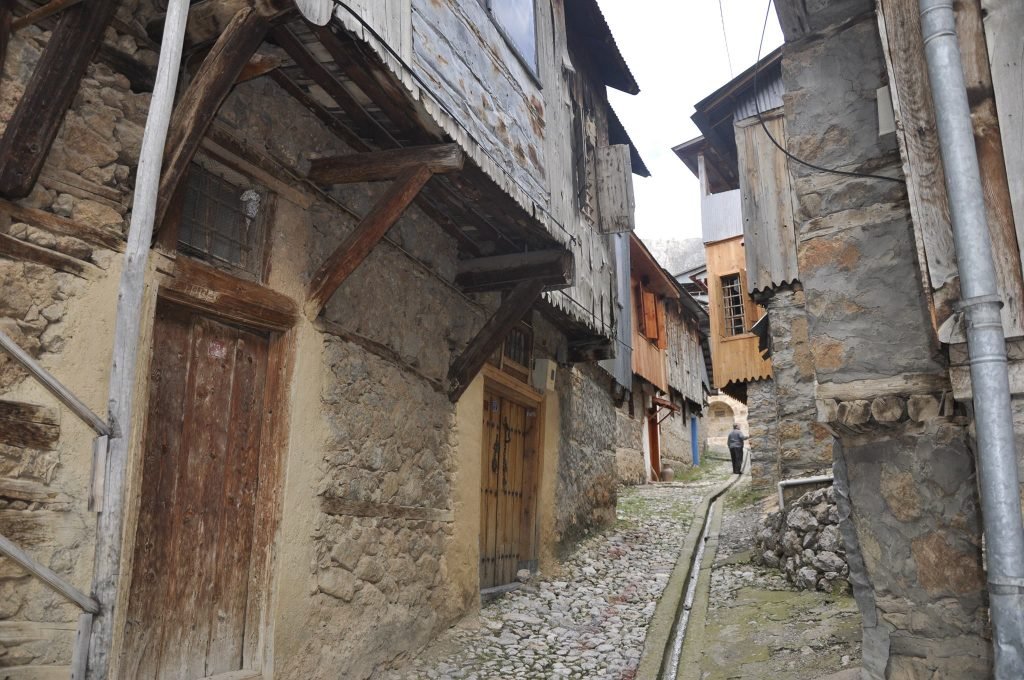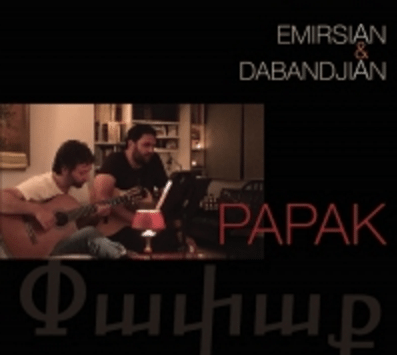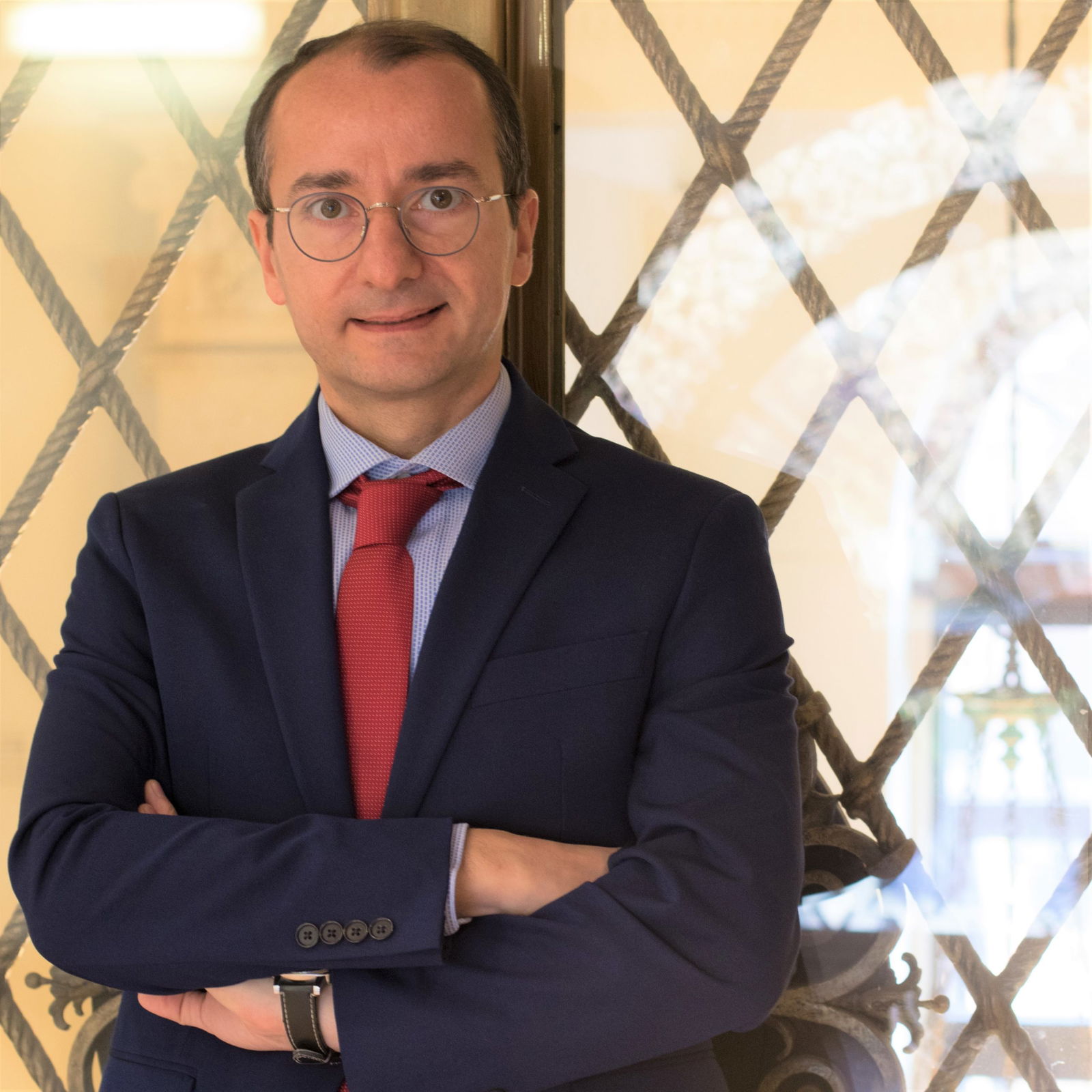A few weeks ago, I visited Misak Medzarents’ (1886-1908) village, Pingean, near the city of Agn (current name: Kemaliye) in Turkey. As I walked in the narrow, cobblestone streets and alleyways of the village where the beloved poet was born, I kept looking at the century-old houses, wondering: Perhaps he was born behind this door, perhaps he scribbled down his first lines on these stairs, perhaps he first fell in love by this fountain… Yet there was no sign of the great poet in this tiny, remote village. He might as well never have existed.

As we returned to our van, I typed in my phone: “I believe that Medzarents’ memory and legacy will, one day, return to Pingean; and his bust will adorn the little village center where older men are gathered now chatting; and perhaps, just perhaps, a small library in the village will carry his name. No, I do not believe. I know.”
***
In a poem titled “The language in which I wrote,” (Լեզուն որով գրեցի), poet Vahan Tekeyan (1878-1945) laments the fact that the Western Armenian language has fewer and fewer speakers, and perhaps within a century, the poems he poured his heart into “will lie in a corner” with no one being able to read them.

There has been renewed attention to the challenges facing the Western Armenian language, be it through conferences and workshops on the topic, or through concrete initiatives to make the language easily accessible to iGeneration, born with iPhone in hand and an attention span of 140 characters.
Major organizations such as Hamazkayin, the Gulbenkian Foundation, and the Armenian General Benevolent Union (AGBU) have demonstrated renewed interest in tackling this issue in recent years, but a broad base and spectrum of initiatives by artists, writers, IT, and social media experts are needed—and I borrow Steve Jobs’ famous quote here—to put a dent in the declining universe of Western Armenian.
The album “Papak” is one such initiative and, I am willing to wager, one that would be dear to Tekeyan’s heart: most of the songs in the album are lyrical poems by renowned Armenian poets put to music—and three Tekeyan poems make the cut! Other lyrical renditions include two poems by Misak Medzarents (including one of my favorites, “Hyughu”), and one poem each penned by Madteos Zarifian, Rupen Sevag, Rupen Vorperian, and Zarouhi Berberian.
“Papak” is the result of an encounter between Parsegh Topjian and Aren Emirsian, where the former proposed that Emirsian create original songs by setting music to Western Armenian poetry. After Ara Dabanjian joined the group, the project picked up speed. The album is dedicated to Topjian, who passed away before the completion of the project. A friend gifted me the CD a few weeks ago, and soon enough, my mental wanderings as I listened to these songs led me here.
It is not just the beautiful rendition that makes “Hyughu” (“The Hut”) a favorite of mine. We had to memorize the poem in middle school, and I continued to grow fonder of it as the years passed, and then as I walked in Pingean.
But before Turkish citizens in Pingean erect the statue of Medzarents, the iGeneration of Armenians need to discover the Armenian poet.
“Papak” takes the poems that “lie in a corner” and releases them into the musical stratosphere, shining yet another beam of light on that cobblestone road to the village center in Pingean.



Heartwarming and Beautiful.
Thank you for a wonderful article. Does anyone know where to purchase the Papak album? Doesn’t seem to be on iTunes.
We are in the process of placing it on iTunes. In the meantime, you can find the physical cd-s here: https://www.cdrama.com/products/PAPAK-4456-8.html
Dear Dr. Mouradian, I enjoyed reading your article about Mezarentz and his birthplace. Unfortunately, I am not as optimistic about the future, given the current local conditions and the growing fanaticism in the country. I also agree about the dwindling use of Western Armenian. I say that as a graduate of the Getronagan Varjaran in Bolis.
Are you from Merametciyan Middle school?
I would love to see more pictures. Could you put more,please?
Միսաք Մեծարենց
Վեհանոյշ Թեքեան
Հիւղակ մը կար ծայրը դաշտին
պատանեկիկ մը դալկահար
հրեշտակներու ձայնով երգեց
ու հիւղակը դարձաւ պալատ
Հողը երկինքը բարձրացուց
արեւր վա՛ր ղրկեց առուն
զեփիւռներու ձայնով երգեց
նաւակը կոյս դարձաւ ասուպ
Մոլորակի մէջ՝ մոլորակ
թաւուտներու մէջ հեզ եղնիկ
ծաղիկներու ձայնով երգեց
ամպերուն մէջ մտաւ յուշիկ
Պատանեկիկ մը կար հրաշք
բառի թրթիռ սիրոյ աւիշ
Աստուածային ձայնով երգեց
ու աշխարհը դարձաւ ուրի՜շ
«Աղօթքներ ուռկանի մէջ»
Well written and touching. A valiant effort by the three artists to produce the CD.
Dear khatchig,
Hello. Your optimism is heartwarming and it is truly something for me to aspire to in thinking about our homeland of WESTERN ARMENIA. I tracked down where the readers of your wonderful article can find the CD. ABRIL BOOKSTORE in Glendale CA carries PAPAK. It is $15.00. Kindly Email or phone Arno at noor@abrilbooks.com or (818) 243-4112.
Best, Ellen
Go to: Youtube: Scars He Carried (5 videos)
My wife is from Plovdif; the hilly cobblestones, the balconies that arch to the neighbor across….
Beautiful story. Glad to see the igeneration take these poems a step further. Back in 1987 Gerald Papasian and I created Sojourn at Ararat, a two-person performance piece based on Armenian poetry, that toured internationally in English and French translations through 2010 (Joe’s Pub) winning many awards. The purpose there was to make these poetic gems available to non-Armenian speakers whether odars or Armenians. The staged form,
and the story it told through the juxtaposition of the poems, made poetry accessible to a worldwide audience. I am glad to see that Western Armenian poetry is being used again, coming alive and being made accessible through these songs. Well done! How can we purchase this CD? I would gladly send them a copy pf Sojourn at Ararat too. Thanks!